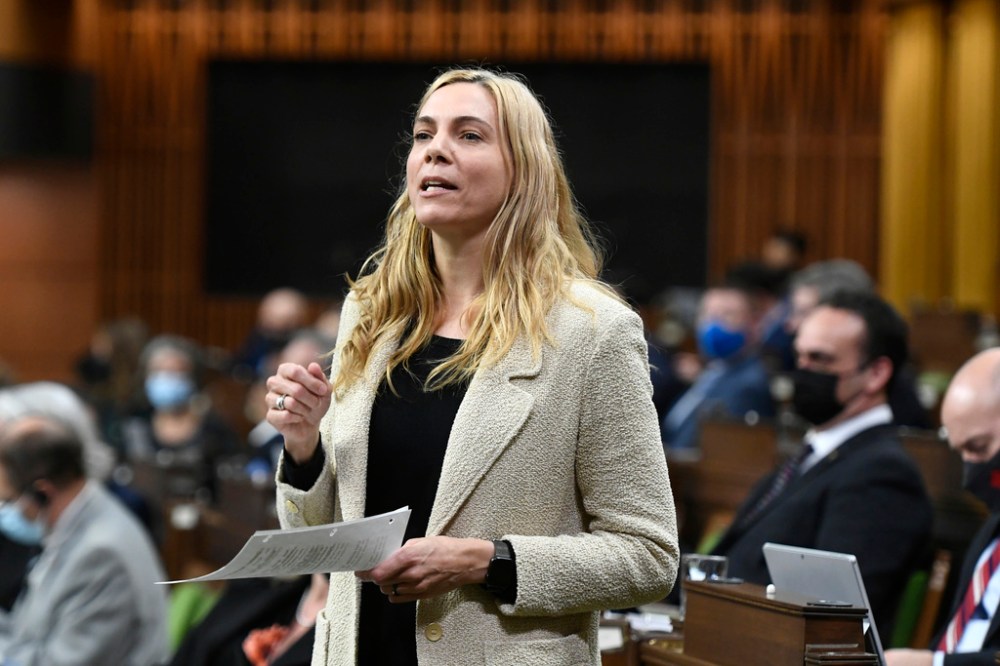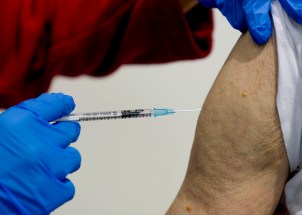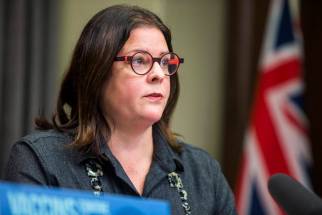Time for Ottawa to cut abuse from sport playbook
Read this article for free:
or
Already have an account? Log in here »
To continue reading, please subscribe:
Monthly Digital Subscription
$0 for the first 4 weeks*
- Enjoy unlimited reading on winnipegfreepress.com
- Read the E-Edition, our digital replica newspaper
- Access News Break, our award-winning app
- Play interactive puzzles
*No charge for 4 weeks then price increases to the regular rate of $19.00 plus GST every four weeks. Offer available to new and qualified returning subscribers only. Cancel any time.
Monthly Digital Subscription
$4.75/week*
- Enjoy unlimited reading on winnipegfreepress.com
- Read the E-Edition, our digital replica newspaper
- Access News Break, our award-winning app
- Play interactive puzzles
*Billed as $19 plus GST every four weeks. Cancel any time.
To continue reading, please subscribe:
Add Free Press access to your Brandon Sun subscription for only an additional
$1 for the first 4 weeks*
*Your next subscription payment will increase by $1.00 and you will be charged $16.99 plus GST for four weeks. After four weeks, your payment will increase to $23.99 plus GST every four weeks.
Read unlimited articles for free today:
or
Already have an account? Log in here »
Hey there, time traveller!
This article was published 06/04/2022 (1344 days ago), so information in it may no longer be current.
When federal Sport Minister Pascale St-Onge read the letter from 71 current and former top-level gymnasts alleging rampant athlete abuse and maltreatment at Gymnastics Canada, she responded with predictable outrage.
“Let me be clear,” St-Onge said in late March. “There is no place for harassment, abuse, discrimination or maltreatment in sports.”
The statement was welcomed but it was also deeply troubling.
As much as we would like to believe otherwise, abuse and maltreatment of athletes is well-entrenched in top-level sports in this country, and has been for a long time. Despite the minister’s strong words, the federal government has been completely ineffective at dealing with the problem.
Consider the events that transpired in March.
It started when more than 60 current and former bobsleigh and skeleton athletes demanded Sarah Storey, president of Bobsleigh Canada Skeleton, resign over allegations the organization had created a culture of intimidation and fear that forced many injured athletes to compete.
St-Onge responded immediately, calling for a financial audit of BCS that could affect future federal funding.
On March 28, with the sports minister’s pledge still hanging in the air, the gymnasts, which included 10 Olympians, released their letter demanding an independent inquiry into the toxic culture at Gymnastics Canada.
The message prompted other gymnasts to come forward; by week’s end, there were more than 270 demanding action.
This prompted St-Onge to hold an emergency round table with sport governing bodies and athlete representatives that included a vow to speed up the creation of an independent mechanism for lodging complaints. At the end of that round table, St-Onge conceded top-level sport was in “crisis.”
The minister’s willingness to confront the issue of athlete abuse and maltreatment is noble. But her comments ring somewhat hollow when you consider this is hardly a new issue.
Consider the events of the past five years.

Between 2018 and 2020, four of Canada’s top university sport programs — hockey programs at Lethbridge and Windsor, rowing at Victoria and track at Guelph — were rocked by allegations of abuse and maltreatment. In the same time period, concerns were raised in five national sports organizations, including Wrestling Canada, Alpine Canada, Gymnastics Canada, Bobsleigh Canada Skeleton.
Wrestling Canada produced a detailed report in 2018 that found a “pattern” of physical, psychological and verbal abuse — with incidents of coaches hitting, grabbing and verbally abusing athletes.
In 2019, national advocacy group AthletesCAN conducted a survey of more than 1,000 of top current and former athletes. It found two-thirds of current and three-quarters of former athletes were victims of deliberate neglect, 60 per cent experienced emotional distress, and 20 per cent experienced physical harm. The survey also found about 20 per cent of all respondents had been victims of some form of sexual abuse or harassment.
It should be noted these are just the instances that have become public. Many of the athletes who came forward said the maltreatment they experienced had been going on for decades but few had the courage to come forward — knowing in doing so, they would likely be shunned.
What is particularly concerning is it took yet another barrage of revelations to get renewed action commitments from a federal minister. It also deserves to be said, to date, no action has actually been taken; St-Onge is merely repeating pledges already been made by her predecessors.

In 2017, a parliamentary committee released an alarming report on the prevalence of sexual harassment in sport. The federal Liberal government responded by promising to create the aforementioned independent dispute resolution mechanism, establish a helpline to support athletes being abused or maltreated, and create the Universal Code of Conduct to Prevent and Address Maltreatment in Sport.
Five years later, it’s hard to identify any positive outcomes from that process.
The code of conduct is in place but clearly hasn’t changed the behaviours of abusive coaches. The independent dispute mechanism, which should provide a safe way for athletes to lodge complaints without fear of reprisal, isn’t up and running yet.
It should be noted there are no easy ways of combating persistent abuse and maltreatment in sport. Ottawa could pull the funding of governing bodies but that would ultimately hurt the athletes. The nature of these incidents are legally problematic as well, pitting the word of athletes against the word of coaches.
And yet, just about everybody agrees something needs to be done.
St-Onge has the attention of the nation’s top-level sport community. She would be well-advised not to waste the opportunity to make real changes so abuse and maltreatment truly have no place in sport.
dan.lett@freepress.mb.ca

Born and raised in and around Toronto, Dan Lett came to Winnipeg in 1986, less than a year out of journalism school with a lifelong dream to be a newspaper reporter.
Our newsroom depends on a growing audience of readers to power our journalism. If you are not a paid reader, please consider becoming a subscriber.
Our newsroom depends on its audience of readers to power our journalism. Thank you for your support.








